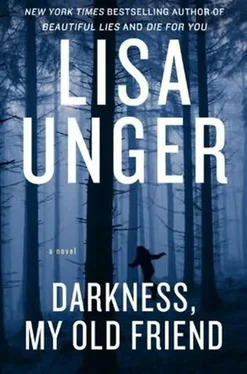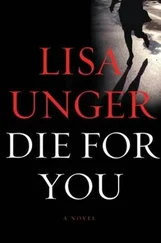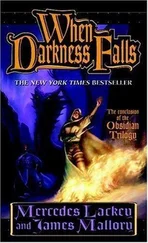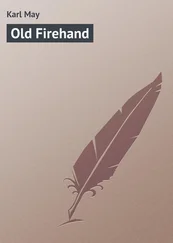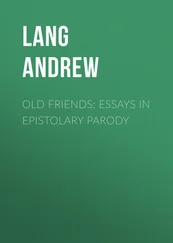He suspected that it was a new idea. That it was very young to think you had a right to happiness, that one might make decisions to that end. Certainly his mother was never happy, never took any steps to make herself happier. As for his father, he had no idea. He didn’t know anything about the man who’d left when Jones was twelve; his father had been more or less absent before that.
Lately he and the good doctor had been talking a lot about Abigail, Jones’s mother, who had been dead more than twenty years now. The smell of cigarette smoke could resurrect her; he could still hear her voice in his head. That’s what I love about you, Jones , she’d say right before she’d say something nasty. The day before she had her stroke, she’d complained of a headache. He’d told her to take a Tylenol. She’d said, That’s what I love about you, Jones. You’re the soul of compassion . Possibly those were the last words she’d spoken to him. He couldn’t remember. By that time he’d been so worn down by her incessant litany of problems, her endless list of symptoms and issues, her ever-increasing visits to doctors, that he’d barely registered the complaint-or the comment that followed his inadequate response.
“Do you feel bad about that?” the doctor had asked in a recent session.
“No,” answered Jones. “Not really.”
Dr. Dahl waited for him to go on. Jones shifted in his chair. “I mean, she’d had a symptom a day all my life. She had to be right sometime, didn’t she? Eventually she was going to call it.”
A slow blink from the doctor. Then, “I meant do you feel bad that those were the last words your mother ever spoke to you?”
The question landed like a shaming slap to the face. Jones felt heat rise up his neck. He found he couldn’t answer.
“You spent the better part of your life caring for her,” the doctor went on. “You’ve as much as admitted that you subordinated most of your ambitions and desires for your life because you felt compelled to stay with her.”
“It wasn’t just that.”
“I know. We’ve talked about the other reasons. Sarah’s death and how it haunted you, how you were swallowed by your guilt. But your mother was at least partially responsible for how you handled that situation as well. Let’s not forget that you were just a kid. With the right guidance, you might have come through that incident better.”
Jones found himself slowly nodding; he kept a neutral expression. That incident . It sounded so mild, like a fender bender or a baseball he’d thrown through a neighbor’s window, some white lie he’d told. He’d watched a girl die and then left her body alone on a darkening spring night. Sarah’s death, his cowardice, all the things that were never revealed until decades later, laid waste to his life, his career. That incident .
The doctor was still talking about Abigail.
“You were a good son. Did she ever thank you? Did she ever say anything kind to you?”
It took every inner resource available to maintain a calm façade. The depths were roiling, a potent brew of rage and fear. Jones couldn’t even say why, just that it frightened him. He frightened himself. As a young man, he’d been buffeted by these feelings, resulting in bar fights (he’d punched a complete stranger right in the jaw for some comment Jones couldn’t even remember), road-rage incidents (he’d all but rammed someone for cutting him off, got out of his car to find a teenage girl crying in the driver’s seat), even problems on the job (as a young cop he’d been before civilian review twice for unnecessary force). Oddly, his recall of the particular incidents was fuzzy. But he remembered the feeling that preceded them. It was just like this. It was Maggie who’d calmed him, who’d saved him from that anger and the damage he could have done.
“I don’t think it was in her DNA. Gratitude.” His tone had sounded so mild, so easy. “She never had anything but complaints for anyone. I didn’t take it personally.”
More pointed silence from the shrink.
“And what about your father?” Dr. Dahl continued eventually. Jones had found himself looking at the guy’s shoes. Very expensive. He could tell. Probably Italian leather, hand-stitched. It was another mark against the doctor. Vanity. “We don’t talk about him very much. It’s an area that bears some exploring.”
Jones had talked a little about the old man, the familiar story of the cop who drank too much, who was only home, it seemed, to raise his voice about whatever and then was gone for good.
“But there was more to him than that. You can’t just cast him as a bad cliché in your life. Maybe you want to find out more about him. Understand him better. You were a detective, after all. You could probably find out anything you wanted to about him.”
It took everything Jones had not to leap over the coffee table and start pummeling the guy.
“Our time is up.” The doctor shut his notebook with a satisfied slap. “Think about it. We’ll pick up here next week.”
But they hadn’t revisited the topic. In fact, that had been the point at which Jones had decided that therapy was maybe not for him. He had to admit that it was the point where he’d “shut down,” as the doctor had accused.
Even now, sitting in the idling car, he felt that ugliness rise within. He realized that just the memory of his conversation with the doctor had him clutching the phone in his hand. His knuckles were white. He forced himself to relax. He still hadn’t decided whether or not he was going to keep his next appointment with the doctor. After all, he had this case now. There wasn’t an unlimited amount of time to do what Chuck had asked. Maybe he could just reschedule the appointment, not cancel it. Maggie didn’t have to know.
The house looked as he’d expected it to somehow: brittle, lonely on a small hill. The trees had littered the lawn with dead leaves, and no one was making any effort to stay on top of it. A wind chime hung on the porch, silent in the still air. He got out of his car and walked up the drive. He didn’t feel the kind of dread he thought he would. Instead he felt the buzz of curiosity that he’d always loved about the job.
He walked up onto the porch and was regarded by an enormous cat in the windowsill. The cat blinked at him with lazy disdain as Jones raised his fist and knocked three times, not seeing a doorbell. He waited a beat and then knocked again.
Her car was in the driveway, the beige Toyota he’d seen yesterday. If anyone told him after her visit that he’d have reason within the next twenty-four hours to knock on Eloise Montgomery’s door, he wouldn’t have believed it. He was about to knock again when he remembered his place. He wasn’t a cop. She had a right not to talk to him if she didn’t want to. But then she opened the door, looking even smaller without her winter coat.
“Hmm,” she said. “I wouldn’t have predicted this.”
“Even psychics don’t know everything.”
“So true.”
She stood back and held the door open for him. He would have expected her to keep him on the porch. He hadn’t been very polite with her yesterday. Not polite at all.
“I’m not here about your predictions for my future,” he said. He stepped over the threshold; it seemed colder inside than out.
“No?”
“No. I’m consulting for the Hollows PD. I have some questions about your involvement in the Marla Holt case.”
She seemed to hold back a smile. “Just to be clear, Michael Holt hired Ray Muldune, who consulted me. My involvement is minimal. I didn’t have anything on her until after I saw you yesterday.”
Clean hardwood floors, a wall of old pictures, a tidy and sunny sitting room, furniture on feet, doilies on end tables. Just as he imagined it-but somehow not, somehow more run-down, more staid than he expected. She must make money on this racket. People had to pay a fortune to connect with the dead, to answer the questions no one else had been able to answer for them. Had he wanted to see more flash?
Читать дальше
